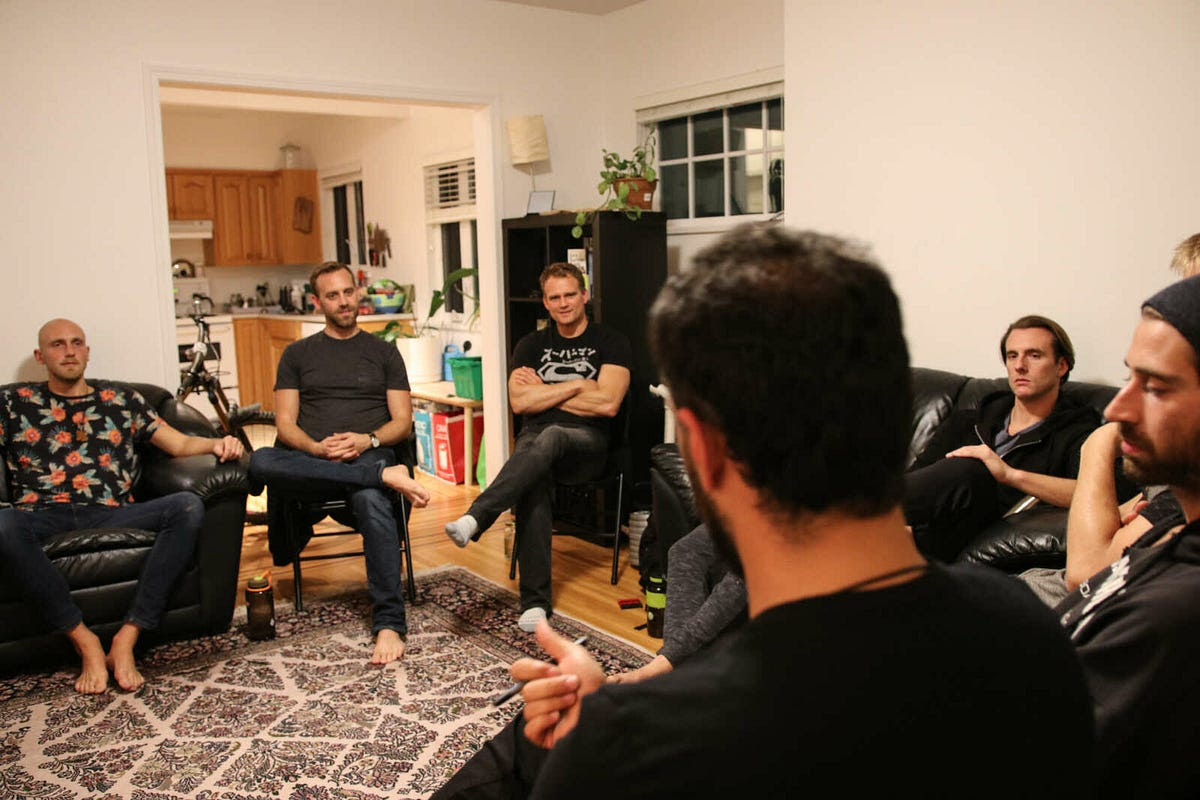
by Rabbi Noam Raucher, MA.ed
In today’s rapidly changing world, Jewish communities face the challenge of addressing the unique needs of men in ways that are both relevant to modern issues and deeply rooted in Jewish tradition. As societal norms evolve, men are confronted with pressures and expectations that can often lead to isolation, emotional distress, and a lack of meaningful connections.
In response, there is an urgent need for dedicated spaces where men can engage in discussions, support one another, and develop healthy, ethical forms of masculinity. Men’s groups, men’s work, and men’s programming are essential for creating these spaces, providing vital support while drawing on Jewish values that have long emphasized the importance of community, mental health, and ethical behavior.
Concern: Men’s mental health is often under-discussed, leading to higher rates of depression, anxiety, and suicide among men. Society frequently discourages men from expressing vulnerability, which can result in isolation and untreated mental health issues.
Jewish Value: The principle of Pikuach Nefesh (saving a life) emphasizes the importance of prioritizing health and well-being. Providing spaces where men can openly discuss their emotions and mental health challenges aligns with this value and can lead to better mental health outcomes.
Concern: Toxic masculinity promotes harmful behaviors and attitudes, such as aggression, emotional suppression, and dominance. These behaviors can lead to unhealthy relationships and societal issues.
Jewish Value: The concept of Derech Eretz (ethical behavior) calls for respectful and compassionate conduct. Men’s programming can challenge toxic masculinity by fostering environments where men learn to express themselves healthily, leading to more ethical and meaningful lives.
Concern: Modern fatherhood comes with unique challenges, including balancing work and family life, engaging in active parenting, and dealing with shifting gender roles. Fathers often lack support networks to navigate these challenges.
Jewish Value: The importance of Shalom Bayit (peace in the home) underscores the need for strong, supportive family structures. Men’s groups can provide fathers with the tools and community support needed to be better partners and parents, ultimately strengthening family bonds and creating more peaceful homes.
Concern: Men often experience significant life transitions — such as divorce, job loss, or aging — with little support. These transitions can lead to feelings of inadequacy and loss of identity.
Jewish Value: The concept of Chesed (loving-kindness) encourages communities to support one another during times of need. Men’s programming offers a space where men can receive compassion, guidance, and community support as they navigate life’s challenges, fostering resilience and a sense of belonging.
Concern: Adult men frequently struggle to form and maintain deep friendships, leading to social isolation. In a world where connections are increasingly digital, meaningful male friendships are more vital than ever.
Jewish Value: The idea of Hevruta (learning partnerships) promotes the importance of friendship and mutual growth. Men’s groups can create opportunities for men to form close, supportive relationships, which are crucial for personal development and community cohesion.
Creating spaces for men’s groups and programming within Jewish communities is not just a response to modern concerns, but a vital expression of Jewish values in action. By addressing mental health, promoting healthy masculinity, supporting fathers, providing safe spaces for life transitions, and fostering male friendships, these initiatives help build stronger, more resilient communities. They enable men to navigate the complexities of contemporary life while staying connected to the rich ethical and spiritual traditions of Judaism. In doing so, Jewish communities can ensure that men are not only supported but also empowered to contribute meaningfully to their families, communities, and the broader world.
Need technical or website help? Email us at
Copyright © 2026 FJMC International. All rights reserved. Website designed by Addicott Web. | Privacy Policy